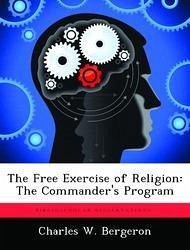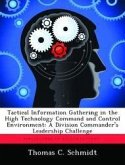Throughout American history religion has played an important part of both private and public life. However, within the recent memory of most Americans, there has been a fight between those who advocate allowing the government to advance religion and those who believe there is a line that cannot be crossed. There is virtually no middle ground. Enter the military commander. This person is responsible to ensure that all subordinates whether affiliated with a religion or not can practice those beliefs as a matter of their own conscience. However, today's commander is perhaps the least equipped, least prepared to accomplish this part of the mission. This is due to a number of factors not the least of which is lack of relevant knowledge of the history of this issue. Using an exploratory case-study approach, I gathered information on Founding Fathers, representative case law, as well as, current military guidance and regulations. By examining the writings and utterances of several Founders relative to religion and governance, one can determine with relative certainty where they stood on these issues. In addition, each court case presents a snapshot in time of separation ideas in the context of that era. Finally, by understanding the magnitude of the problem facing the military commander today, one can appreciate how far we still need to go.
Hinweis: Dieser Artikel kann nur an eine deutsche Lieferadresse ausgeliefert werden.
Hinweis: Dieser Artikel kann nur an eine deutsche Lieferadresse ausgeliefert werden.








